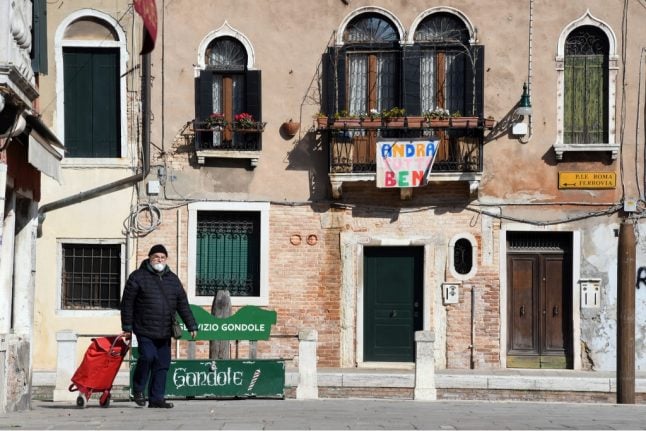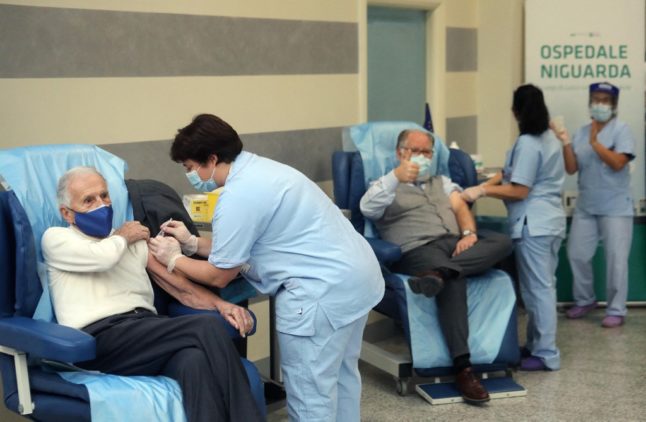Under its so-called “soft lockdown” rules, the Veneto region, of which Venice is the capital, has allowed stores of all types to open for two days a week.
Italy's national government on Tuesday allowed some businesses, such as bookshops and children's clothing stores, to reopen across the country – the first easing of national lockdown rules in place since March 10th.
READ ALSO:
However, some of Italy's regions, including Lombardy, chose to keep their own tougher rules in place and refused to allow shops to open before May 3rd.
The Veneto region has moved in the opposiite direction, relaxing some of its stricter measures on Monday.
It has also ruled that residents can go out for one hour of exercise per day, staying within 200 metres of their homes.
Open-air markets are allowed to reopen.
Masks and gloves must be worn by anyone leaving the house, and anyone with a temperature above 37.5 remains forbidden to go out.
In Veneto, the traditional picnics will be allowed on the upcoming national holidays, on April 25 and May 1, “but only on private property and with family members,” Regional President Luca Zaia said.
“It is an act of trust towards the Venetians,” he said at a press conference on Monday.

Photo: AFP
But without the usual crowds of tourists and the water taxis racing through the Grand Canal, the city remained strangely quiet.
The softened restrictions in Veneto could be an indicator of what may happen across Italy under the planned “phase two” of lockdown.
READ ALSO:
Following the announcement, Zaia later struck a cautious tone.
“The tragedy is not over, and I am very worried that some people might think that it is,” he warned on Monday, reports Italy's Il Corriere newspaper.
Veneto is the region under the greatest pressure from politicians and business groups to move into “phase two”, Il Corriere writes, along with Liguria, which is considering allowing contruction work to continue
Tourist havens such as Venice have been hit particularly hard financially by the coronavirus crisis.
The nearby northern regions of Lombard and Piedmont meanwhile have conversely been refusing to allow any shops to open, and implementing tougher controls.
However, Lombardy's governor in an apparent change of heart on Thursday said that Italy should now start getting back to work.

Photo: AFP



 Please whitelist us to continue reading.
Please whitelist us to continue reading.
Member comments